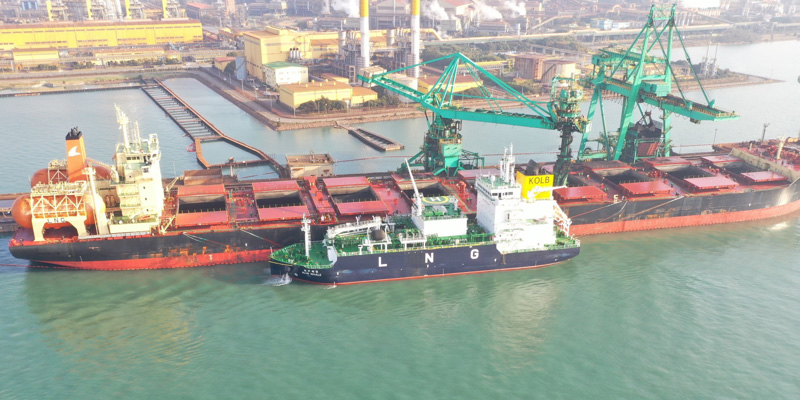KOGAS
KOGAS is taking the lead in the new era of low-carbon, eco-friendly energy.
KOGAS strives to secure future growth by actively engaging in various eco-friendly fuel conversion projects, such as LNG bunkering business, that can create new LNG demand. This contributes to mitigating the serious environmental and social problems of climate change and fine dust. The gas cooling business will also be an alternative to national electricity supply, mitigating seasonal spikes in demand.
LNG Bunkering Business

The International Maritime Organization’s (IMO’s) 2020 reduction in permitted sulphuric acid compound concentration in marine fuel emissions from 3.5% to less than 0.5% is expected to intensify demand for LNG bunkering, which converts marine fuel to LNG. Accordingly, KOGAS has laid the legal foundations and policies for the use of LNG marine fuels, and is striving to revitalize the LNG bunkering business by establishing a bunkering subsidiary to expand the use of LNG marine fuels. In addition, we completed bunkering vessel, the Blue Whale, and put into operation in May 2023. This project has provided the opportunity for KOGAS to lay the groundwork for a bridgehead for the transport fuel conversion business.
Gas Cooling Supply Business
KOGAS is actively promoting the gas cooling supply business to alleviate the problem of seasonal power demand spikes. Since gas air conditioners use gas instead of electricity as a heat source, they can contribute to the stabilization of power supply and demand by replacing summer cooling and winter heating electricity demands with gas. The government and KOGAS are currently driving the continuous expansion of gas cooling supply through various policies such as installation subsidies, mandatory gas cooling in public institutions, and enticement to install gas cooling in large buildings.



